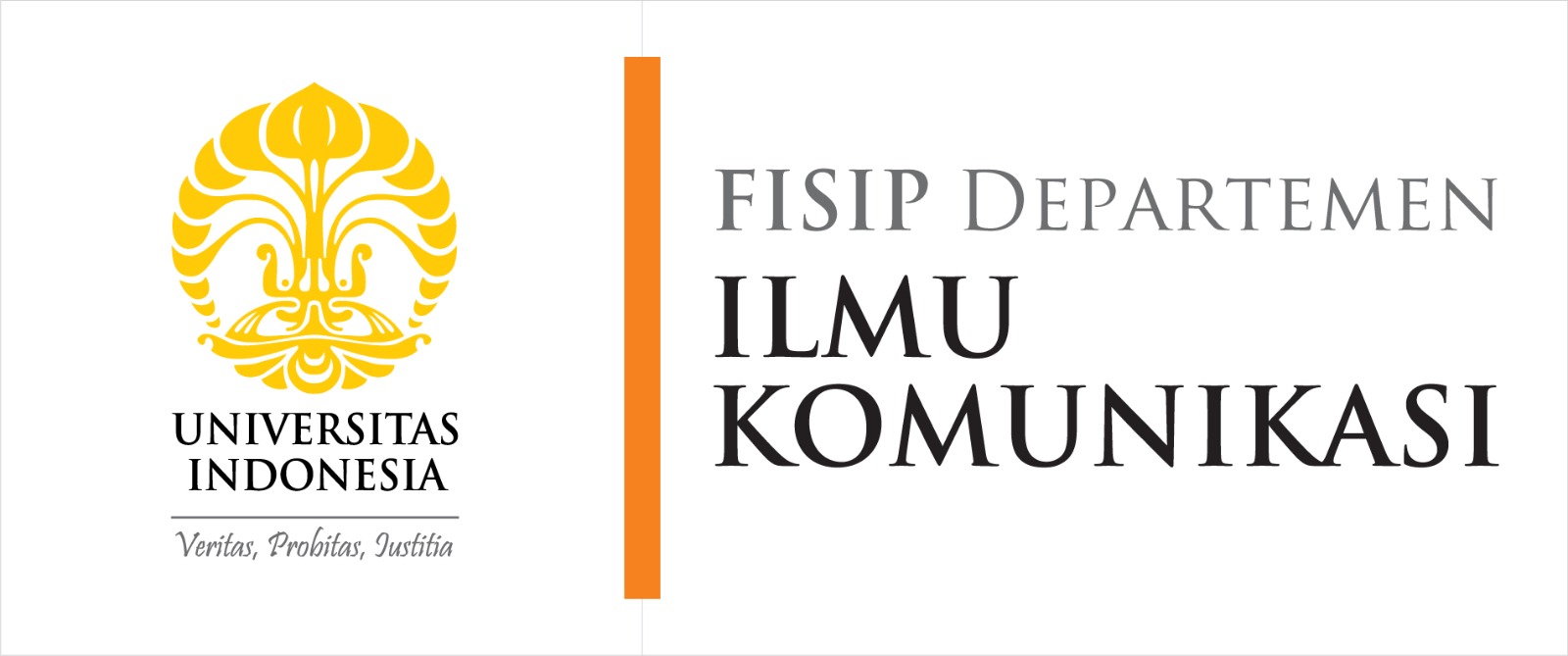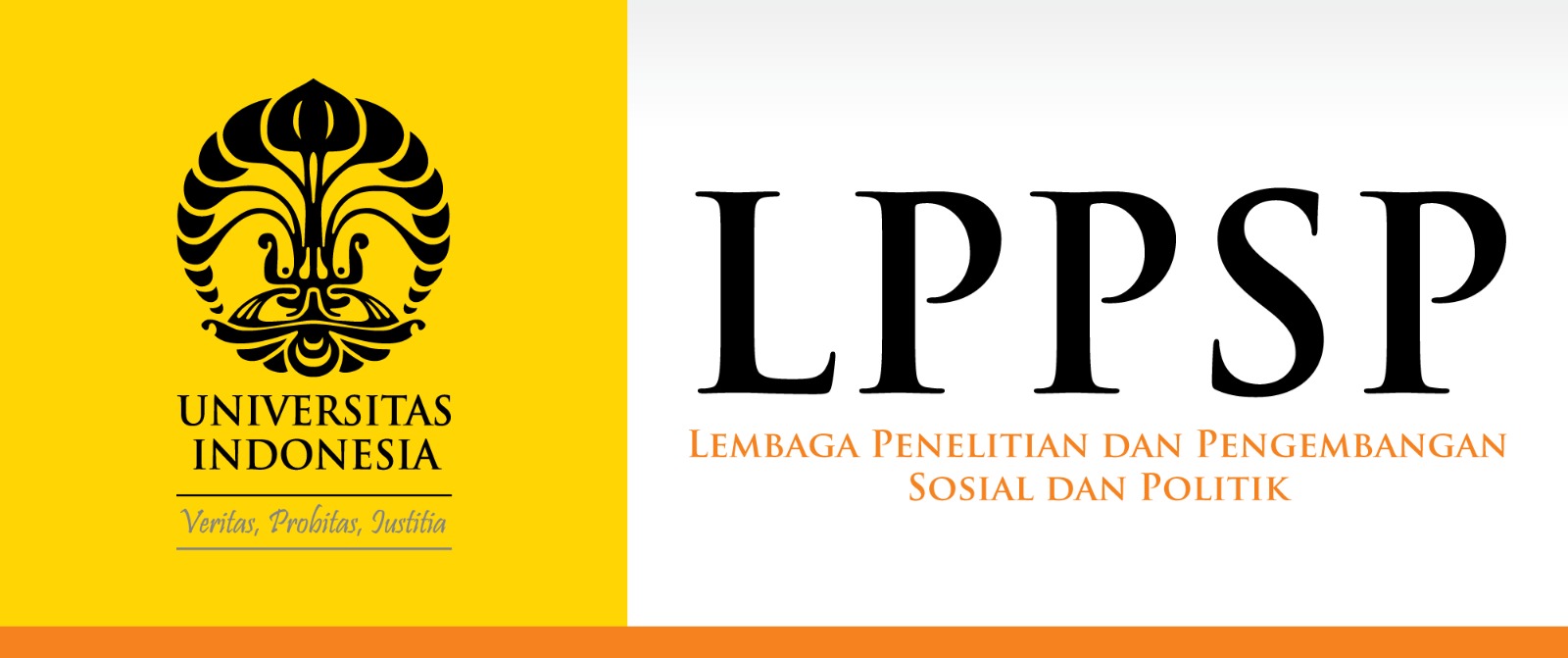JURNAL KOMUNIKASI INDONESIA
Abstract
This research is motivated by the lack of research on the symbolic violence that raised the precarious workers as their subjects. Most studies on symbolic violence that occur in organizations are focused on hierarchical organizations, where obviously dominant and dominated positions are already visible. The phenomenon of precarious workers in Indonesia is widely discussed in the various field of academic, especially the field of law that discusses the unavailability of laws governing online transportation business. The absence of such laws, then becomes a chance for online transportation companies to gain profit by abusing the interests of others (in this case, their partners). Precarious workers in the online transportation business are recruited with a partnership agreement, which should place their position equal to the e-commerce transportation company. But in reality, precarious workers are dominated by e-commerce transportation companies. This study aims to determine the symbolic violence received by precarious workers in the online transport business. This study used the concept of symbolic violence from Pierre Bourdieu, where symbolic violence is closely related to doxa, habitus, capital and arena. This research uses the paradigm of critical constructivism and is descriptive qualitative research. This study also used in-depth interviews of 4 informants as the data collection techniques. The results of this study indicate the occurrence of symbolic violence towards precarious worker in the cooperative relations (partnership agreement) with the e-commerce company in the form of bonus gains policy, tariff policy, and punishment policy. This study has identified the doxa, habitus, capital and arena that encourage symbolic violence towards precarious workers. This study also found that there are two types of precariat workers and differing acceptance of symbolic violence. The differences are influenced by factors such as gender and the motive of the precarious workers when they join the e-commerce company.
References
Adhi. (2016) “Sejarah Bisnis e-Commerce di Indonesia dari Masa ke Masa”. Retrieved from https://www.money.id/digital/sejarah-bisnis-e-commerce-di-indonesia-dari-masa-ke-masa-160427f.html, on 14 November 2017.
Adriaanse, M. L. (2016)."Profits and Precarity: Uber and the Crisis of Work”. Anderson, A. (2013). “Teach for America and Symbolic Violence: A Bourdieuian Analysis of Education’s Next Quick-Fix”. Urban Rev, 45:684–700. DOI 10.1007/s11256-013-0241-x. Aminah, A. N. (2016) “Demo Besar-besaran, Gojek Tuntut Penghapusan Performa”. Retrieved from http://nasional.republika.co.id/berita/nasional/jabodetabek-nasional/16/10/03/oegjmm384-demo-besarbesaran-gojek-tuntut-penghapusan-performa on 3 Januari 2018. APJII. (2016). “Infografis Penetrasi & Perilaku Pengguna Internet Indonesia, Survey 2016”. Ayuwuragil, K. (2017). “Sistem Baru Penilaian Gojek Dikeluhkan Pengemudi”. Retrieved from https://www.cnnindonesia.com/teknologi/20170705161630-185-225907/sistem-baru-penilaian-gojek-dikeluhkan-pengemudi on 3 Januari 2018. Balibang Kominfo. (2017) “Infografis Indikator TIK 2016”. Retrieved from https://web.kominfo.go.id/sites/default/files/20170210-Indikator-TIK-2016-BalitbangSDM-Kominfo.pdf, on 14 November 2017.
Bordieu, P. (1991). Language and Symbolic Power. Cambridge : Polity Press. -----------------. (1998). Practical Reason, On The Theory of Action. California: Stanford University Press.
-----------------. (2002). Masculine Domination. California : Standford University Press.
Emmerich, et al. (2015). “Caring for Quality of Care: Symbolic Violence and The Bureaucracies of Audit”.BMC Medical Ethics, 16:23.DOI 10.1186/s12910-015-0006-z. Fuchs, C. (2010). “Class, Knowledge, and New Media”. Media, Culture & Society, Sage Publications, Vol. 32(1): 141-150. DOI: 10.1177/0163443709350375. Harisno, and Pujadhi, T. (2009). “E-Business dan E-Commerce Sebagai Trend Taktik Baru Perusahaan”. CommIT, Vol. 3 No.2, 66-69. Haryanti, L. (2016). Strategi Bahasa Auditor BPK RI Sebagai Upaya Menghadapi Kekerasan Dalam Arena Pemeriksaan. Tesis Magister yang tidak diterbitkan, Universitas Indonesia, Jakarta.
Haryatmoko. (2016). Membongkar Rezim Kepastian, Pemikiran Kritis Post-Strukturalis. Yogyakarta: Penerbit PT Kanisius. Hidayat, D. N. (2008). Dikotomi Kualitatif-Kuantitatif dan Varian Paradigmatik dalam Penelitian Kualitatif. Jurnal Ilmiah Scriptura Vol 2 No 2, 81-94. Nastiti, A. (2017). “Cerita Pengemudi Menguak Eksploitasi di Gojek, Grab, dan Uber.” Retrieved from https://theconversation.com/cerita-pengemudi-menguak-eksploitasi-di-gojek-grab-dan-uber-84599, on 14 November 2017. Natadjaja, L. and Setyawan, P. B. (2016). “Creating Community Through Design; The Case of Go-Jek Online”. International Journal of Cultural and Creative Industries, Vol. 4 Issue 1: 18-27. Nurismayanti, R. (2016). Kekerasan Simbolik Terhadap Perempuan Dalam Arena Acara Resmi (Studi pada Pembawa Acara Perempuan di Badan Pemeriksa Keuangan Republik Indonesia). Tesis Magister yang tidak diterbitkan, Universitas Indonesia, Jakarta.
Patton, M. Q. (2002). Qualitative Research & Evaluation Methods. 3rd edition. Thousand Oaks, CA: Sage Publication. Permatasari, M. A. (2017). Homoseksual di Lingkungan Kerja (Studi Kekerasan Simbolik Heteroseksual Terhadap Homoseksual). Tesis Magister yang tidak diterbitkan, Universitas Indonesia, Jakarta. “Pertumbuhan Pengguna Internet, Indonesia Nomor 1 Dunia”. (2017). Retrieved from http://databoks.katadata.co.id/datapublish/2017/05/22/pertumbuhan-pengguna-internet-indonesia-nomor-1-di-dunia, on 14 November 2017. Pratama, G. Y., Suradi, and Aminah. (2016). “Perlindungan Hukum Terhadap Data Pribadi Pengguna Jasa Transportasi Online Dari Tindakan Penyalahgunaan Pihak Penyedia Jasa Berdasarkan Undang-Undang No. 8 Tahun 1999 Tentang Perlindungan pelanggan”. Diponegoro Law Journal, Vol 5 No. 3. Pratama, W. (2016). “Mengenal Apa Itu Startup dan Perkembangannya di Indonesia”. Retrieved from http://www.wahyupratama.id/2016/10/mengenal-apa-itu-startup-dan-perkembangannya.html, on14 November 2017. Purnamasari, N. (2017). “Driver Demo Kena Suspend, Grab: Mereka terbukti Curang”. Retrieved from https://news.detik.com/berita/d-3543002/driver-demo-kena-suspend-grab-mereka-terbukti-curang, on 14 November 2017. Putera, A. (2017). “Driver Grab yang di-suspend mengaku punya tabungan jutaan rupiah”. Retrieved from http://megapolitan.kompas.com/read/2017/06/27/14122581/.driver.grabcar.yang.di-.suspend.mengaku.punya.tabungan.jutaan.rupiah, on 14 November 2017. Rifaldi, K., and Sulistyowati. (2016). “Pengaruh Kualitas Pelayanan Transportasi Online Gojek Terhadap Kepuasan Pelanggan Pada Mahasiswa/i Administrasi Niaga Politeknik Negeri Jakarta”. Epigram, Vol. 13 No. 2. Rizqo, K. (2017). “Tuntut Perbaikan Tarif, Driver Demo Kantor Gojek”. Retrieved from https://news.detik.com/berita/d-3719899/tuntut-perbaikan-tarif-driver-demo-kantor-go-jek, on 14 November 2017. Saleh, M. (2015). “Studi Tentang Pola Kemitraan PT. Perkebunan Nusantara XIII Dalam Meningkatkan Perekonomian Masyarakat Di Desa Semuntai Kecamatan Long Ikis Kabupaten Paser”. eJournal Ilmu Pemerintahan, 3 (4) 2015 : 1527-1538. Samuel, C. (2013). “Symbolic Violence and Collective Identity: Pierre Bourdieu and the Ethics of Resistance”. Social Movement Studies: Journal of Social, Cultural, and Political Protest. DOI: 10.1080/14742837.2013.823345.
Standing, G. (2011). The Precariat: The New Dangerous Class. London: Bloomsbury Press. Stibitz, S. (2015). “How to Get a New Employee Up to Speed”. Retrieved from https://hbr.org/2015/05/how-to-get-a-new-employee-up-to-speed, on 28 November 2017. Tannahill-Moran, D. (2012). “New Job and Self Doubt”. Retrieved from http://careerrocketeer.com/2012/09/new-job-and-self-doubts.html, on 28 November 2017.
Wirawan, J. (2016). “Pemerintah Indonesia dinilai gagap sikapi transportasi berbasis IT”. Retrieved
from http://www.bbc.com/indonesia/berita_indonesia/2016/03/160322_indonesia_taksi_protes, on 14 November 2017.
Recommended Citation
Firdaus, Risya Zahrotul and Agustin, Sari Monik
(2019)
"Symbolic Violence Towards Precarious Worker of E-Commerce Company of Transportation Services,"
JURNAL KOMUNIKASI INDONESIA: Vol. 8:
No.
1, Article 6.
DOI: 10.7454/jki.v8i1.10387
Available at:
https://scholarhub.ui.ac.id/jkmi/vol8/iss1/6
Included in
Gender, Race, Sexuality, and Ethnicity in Communication Commons, International and Intercultural Communication Commons, Social Influence and Political Communication Commons




